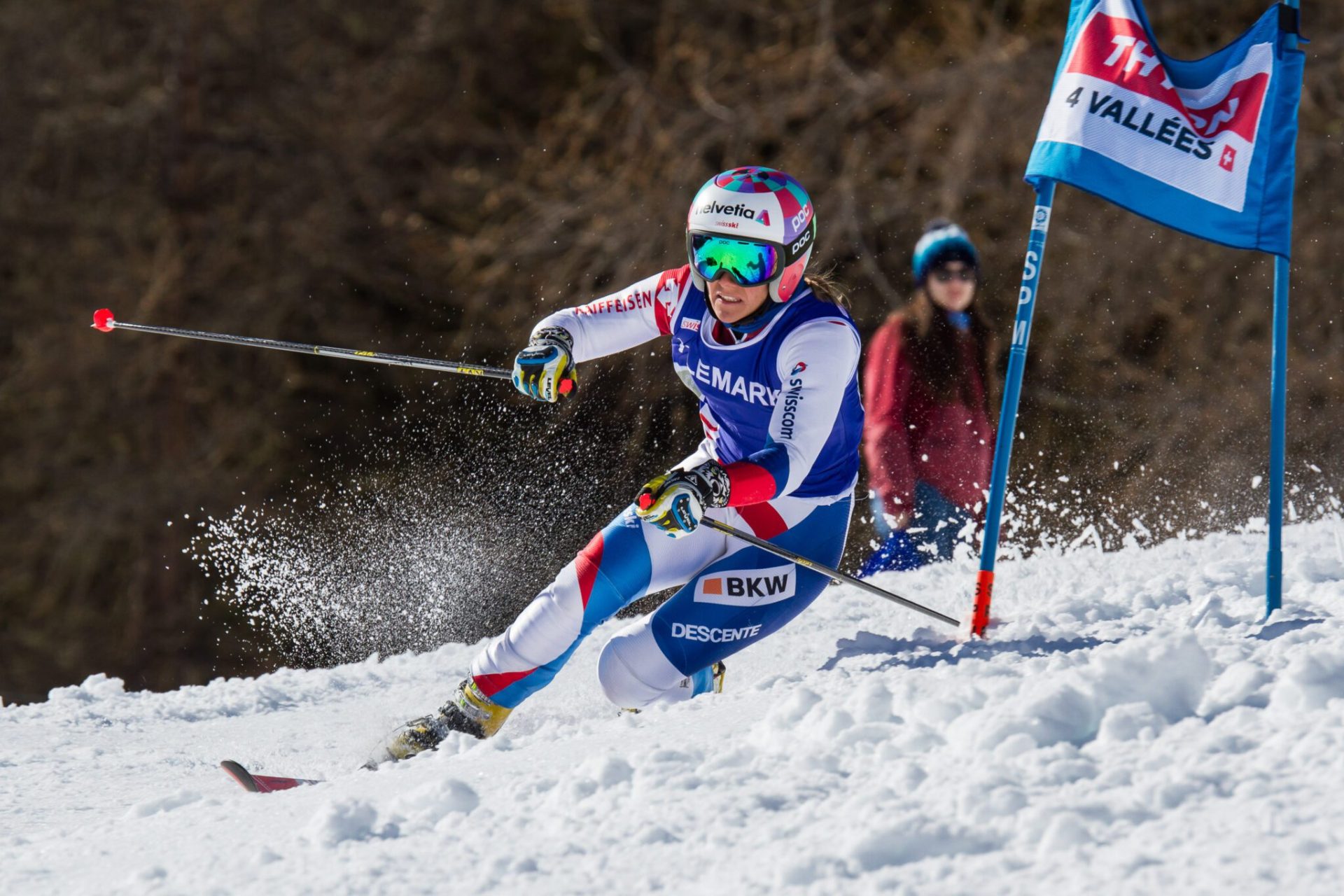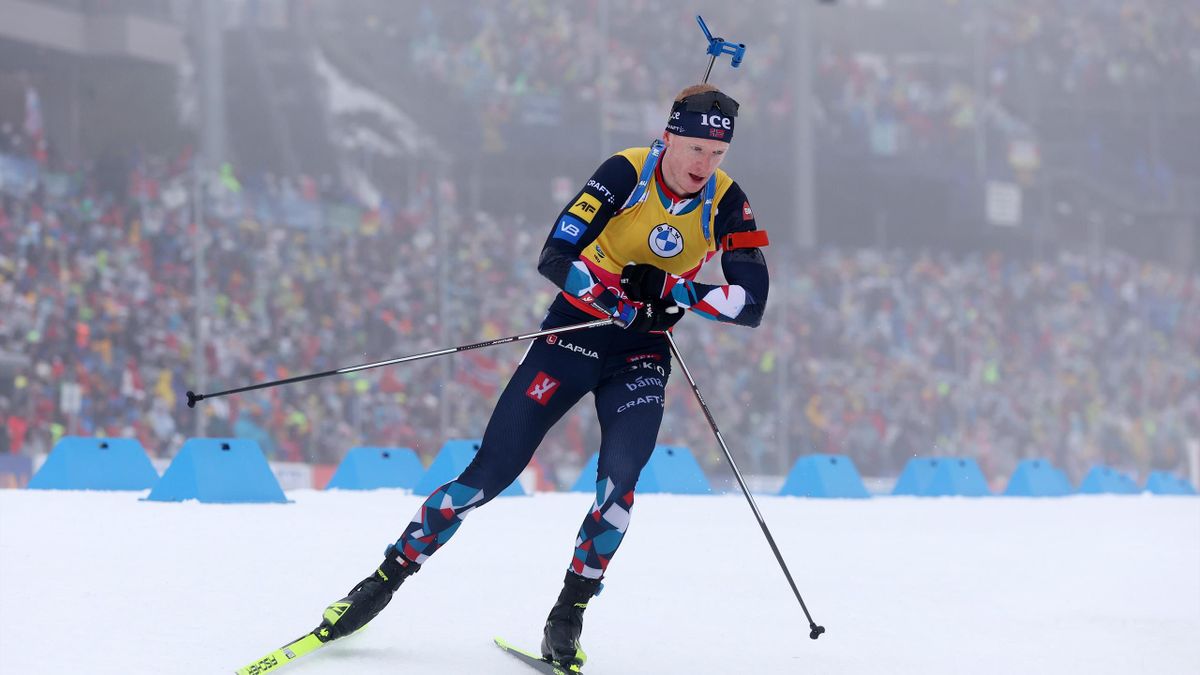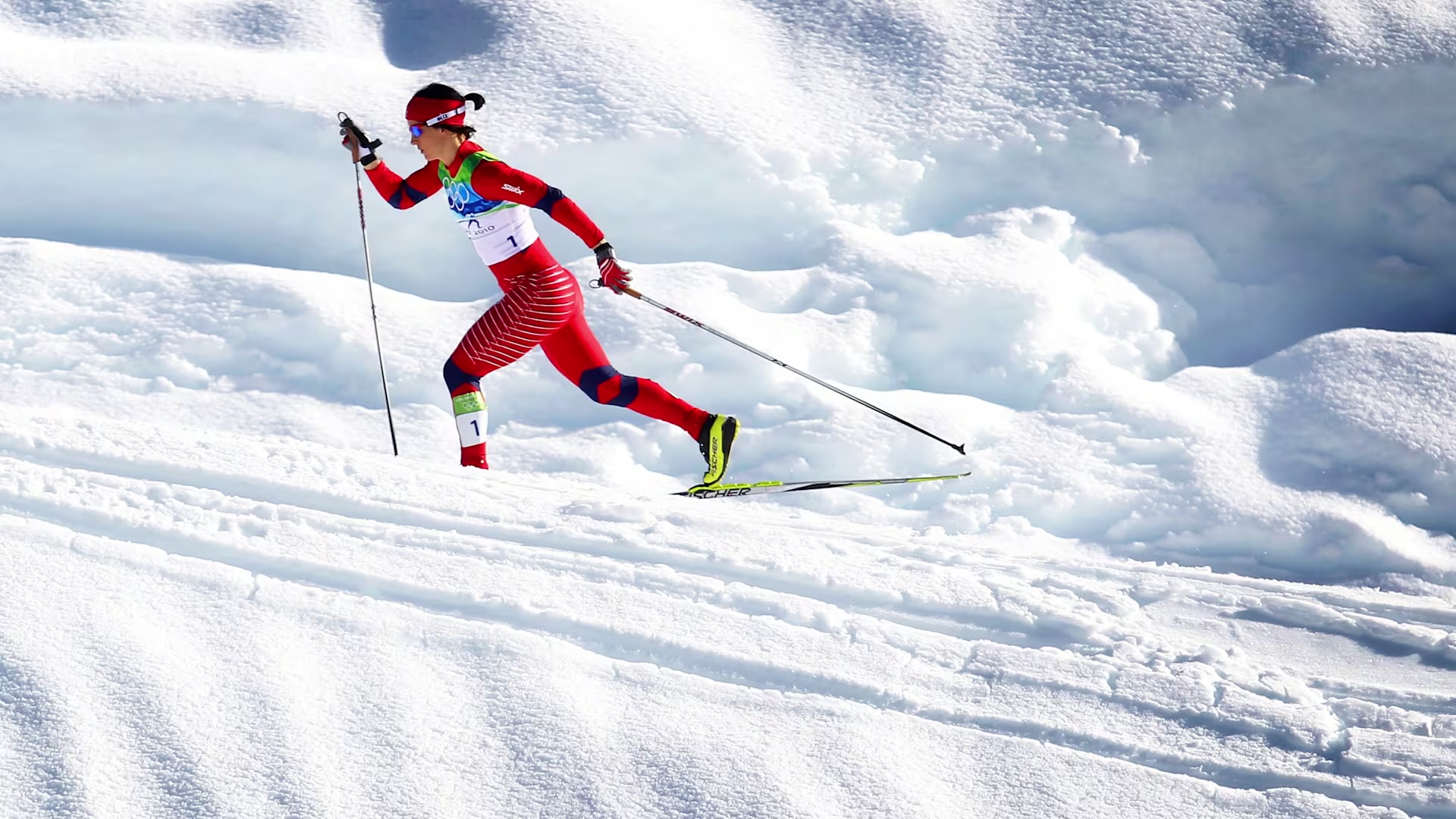
Mikaela Shiffrin could join the small yet exclusive “Century Club” of winter sports athletes who have won at least 100 World Cups. While for most, winning even a single World Cup event is a remarkable achievement, there is a select group of skiers who have amassed 100+ victories. These legends of the slopes, tracks, and trails have redefined what it means to excel in their disciplines, pushing the boundaries of human performance while captivating fans around the globe.
Amélie Wenger-Reymond, Switzerland — Telemark Skiing — 164 World Cup Victories
In the specialized discipline of telemark skiing, Switzerland’s Amélie Wenger-Reymond reigns supreme. With an unprecedented 164 World Cup victories, she has completely rewritten the record books of her sport. Telemark, a hybrid of alpine and Nordic skiing, demands exceptional technical skill, endurance, and adaptability. Wenger-Reymond’s dominance spans more than 15 years, a testament to her unmatched expertise and commitment. She has won 76 Sprint, 45 Classic, 26 Parallel Sprint, and 17 Giant Slalom events in her career spanning from 2007 to 2023. Despite the niche appeal of telemark skiing, the Swiss skier’s achievements have brought telemark skiing greater visibility and respect on the global stage.

Johannes Thingnes Bø, Norway — Biathlon — 127 World Cup Victories
Norwegian biathlete Johannes Thingnes Bø has brought unprecedented speed and precision to his sport. With 127 World Cup victories to his name, Bø’s dominance lies in his seamless combination of lightning-fast skiing and steady shooting under pressure. His reign has not only redefined what’s possible in biathlon but also drawn increased global attention to a sport that thrives on its mix of physical and mental demands. The 30-year-old has also won eight Olympic medals, five of which were Gold medals.

Marit Bjørgen, Norway — Cross Country Skiing — 114 World Cup Victories
In cross-country skiing, Norway’s Marit Bjørgen stands as an unrivaled icon. With 114 individual World Cup victories, Bjørgen dominated the sport for nearly two decades before retiring in 2018. Known for her physical endurance and tactical acumen, Bjørgen was equally skilled in sprint and distance events, a combination that helped her win five overall World Cup titles and secure 15 Olympic medals, eight of which were Gold meals. She has won 62 Distance, 40 Sprint, and 12 Ski Tour events between 1999 and 2018.

Conny Kissling, Switzerland — Moguls, Aerials & Acro/Ski Ballet — 106 World Cup Victories
Swiss freestyle skier Conny Kissling carved her place in history with 106 World Cup wins during the 1980s and 1990s, setting a record in Freestyle that remains untouched. Competing in Moguls, Aerials, and Acro/Ski Ballet, Kissling’s versatility made her a household name in freestyle skiing’s formative years. Kissling’s achievements came during a time when freestyle was gaining recognition on the global stage. At the time, Freestyle athletes were expected to master multiple disciplines and a separate “Combined” category of Moguls, Aerials and Acro/Ski Ballet existed. Kissling was instrumental in legitimizing freestyle skiing as a competitive sport and paving the way for future generations. From 1981 to 1992, she won 66 Combined, 34 Acroski, four Moguls, and two Aerials World Cups.

On the watchlist of athletes that could join Shiffrin in this small, exclusive club is Canada’s Mikael Kingsbury, who is the strongest mogul skier in the world. He currently has 90 World Cup victories to his name and is still active, so could potentially break the 100-barrier this season. Another winter sport athlete with good odds is Norway’s Johannes Klaebo. The 28-year-old cross-country skier has 84 World Cup victories to his name and has only been active for six seasons. In the 2023-24 season, he won 16 races and at this rate, he can smash the 100-marker during the 2024-25 season.
Athletes who reach the milestone of 100 World Cup wins transcend their sports and inspire awe, but they also reflect the growing competitiveness of elite-level winter sports. Moreover, it also underscores a significant shift in the lifespan of athletic careers, particularly in winter sports. In past decades, elite athletes like Vreni Schneider or Annemarie Moser-Pröll often retired in their mid-20s, citing physical strain and a lack of long-term career sustainability. Moser-Pröll, for instance, retired at just 25, despite holding the record for the most women’s Alpine skiing World Cup wins until recently. In contrast, today’s stars often sustain peak performance into their late 20s, 30s, or even beyond, shattering the conventions of previous generations. Lindsey Vonn has announced her comeback to competitive skiing at age 40, a feat previously thought impossible.
This evolution can largely be attributed to advances in sports science, which have fundamentally altered the way athletes train, recover, and manage their health. Tailored fitness programs and data-driven analytics now allow skiers, skaters, and other winter athletes to optimize their performance without overtraining. Recovery methods, from cryotherapy to advanced physiotherapy, ensure muscles heal more efficiently, reducing the risk of chronic injuries that often hastened earlier retirements. In addition, nutrition has also undergone a revolution. Personalized diet plans, supplements, and hydration strategies have become integral to performance. By understanding how to fuel their bodies for both endurance and explosive power, athletes can maintain their competitive edge for far longer.
This longevity is reshaping winter sports. More experienced athletes remain in the field, raising the level of competition and providing younger competitors with seasoned rivals to emulate. While the demands of these sports remain grueling, the barriers to a prolonged career have been significantly reduced, and with that, the possibility of breaking previously insurmountable records has become more tangible.